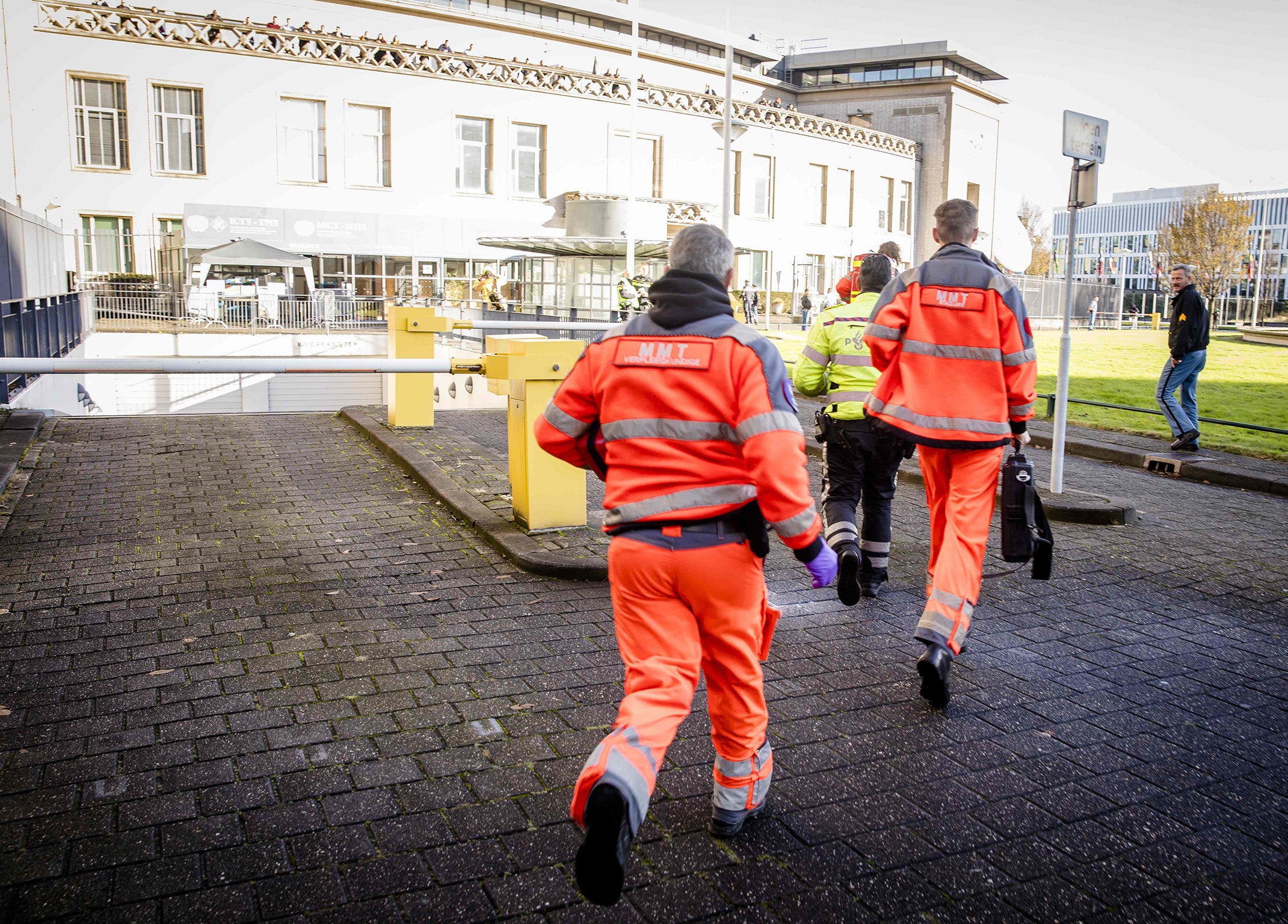Slobodan Praljak death: Bosnian Croat war crimes suspect dies after 'drinking poison' during tribunal at The Hague
Slobodan Prljak one of six former political and military leaders to have sentences upheld
Your support helps us to tell the story
From reproductive rights to climate change to Big Tech, The Independent is on the ground when the story is developing. Whether it's investigating the financials of Elon Musk's pro-Trump PAC or producing our latest documentary, 'The A Word', which shines a light on the American women fighting for reproductive rights, we know how important it is to parse out the facts from the messaging.
At such a critical moment in US history, we need reporters on the ground. Your donation allows us to keep sending journalists to speak to both sides of the story.
The Independent is trusted by Americans across the entire political spectrum. And unlike many other quality news outlets, we choose not to lock Americans out of our reporting and analysis with paywalls. We believe quality journalism should be available to everyone, paid for by those who can afford it.
Your support makes all the difference.A Bosnian Croat wartime commander has died after drinking poison during an appeals hearing at a UN court, Croatia's prime minister has confirmed.
Slobodan Praljak, one of six former political and military leaders who were appealing their sentences in The Hague, died in a local hospital.
The 72-year-old tilted back his head and took a swing from a flask or glass as the judge read out that his 20-year prison sentence had been upheld.
"Judges, I am not a war criminal, I reject the verdict with contempt," he said after drinking. The presiding judge called for a doctor and halted the proceedings.
The apparent courtroom suicide, which was broadcast on a video feed, came in the final minutes of the last judgement at the International Criminal Tribunal for the Former Yugoslavia (ICTY), which closes next month.
"Former head of the chief headquarters of the Croatian Defence Council, General Slobodan Praljak, died in a hospital in The Hague after he drank poison in a courtroom after the International Criminal Tribunal for the Former Yugoslavia confirmed his 20-year sentence for war crimes," Croatian TV reported.
UN court representatives and Dutch hospital officials declined to comment on his condition.

The presiding Judge Carmel Agius suspended the hearings and paramedics raced to the courtroom, which was declared a crime scene by Dutch authorities. As forensic investigation got underway, the courtroom was sealed off, and the public was instructed to leave.
"Don't take away the glass," Agius said, instructing the guards to lower blinds and block a glass-partition separating the court from the public.
In the chaotic moments that followed, guards and paramedics raced in and out of the courtroom. Ambulances were seen leaving the tribunal, but there was no official confirmation of Praljak's condition.
A reading of the judgement, which was also deciding on charges against five other suspects, resumed more than two hours after Praljak said he had poisoned himself.
The incident upstaged the appeals ruling, which was important for Croatia, where parliament was suspended so lawmakers could follow the reading of the verdict.
The court upheld convictions of Praljak and five other Bosnian Croats: Jadranko Prlic, the political leader of the Croatian province of Bosnia, along with military and police figures Bruno Stojic, Milivoj Petrovic, Valentin Coric and Berislav Pusic.
Judges upheld findings that there was a criminal conspiracy that included the regime of neighbouring Croatia under then-President Franjo Tudjman with the goal of "ethnic cleansing of the Muslim population" of parts of Bosnia to ensure Croatian domination.
The defendants on Wednesday received sentences ranging from 10 to 25 years. The decision cannot be appealed.
The chairman of Bosnia's inter-ethnic presidency, Dragan Covic, a Croat, said: "He showed before the whole world what kind of sacrifice he is ready to make to prove that he is not a war criminal."
The ICTY, established in 1993 by the UN Security Council, indicted 161 war crimes suspects from Bosnia, Croatia, Serbia, Montenegro and Kosovo. Of the 83 convicted, more than 60 of them were ethnic Serbs.
The court's lead suspect, former Yugoslav President Slobodan Milosevic, died of a heart attack in March 2006 months before a ruling in his genocide case.
Former Bosnian Serb military commander Ratko Mladic was found guilty of genocide by the UN war crimes tribunal last week and sentenced to life in prison for his role in massacres and ethnic cleansing during Bosnia's war.
Additional reporting by Reuters

Join our commenting forum
Join thought-provoking conversations, follow other Independent readers and see their replies
Comments